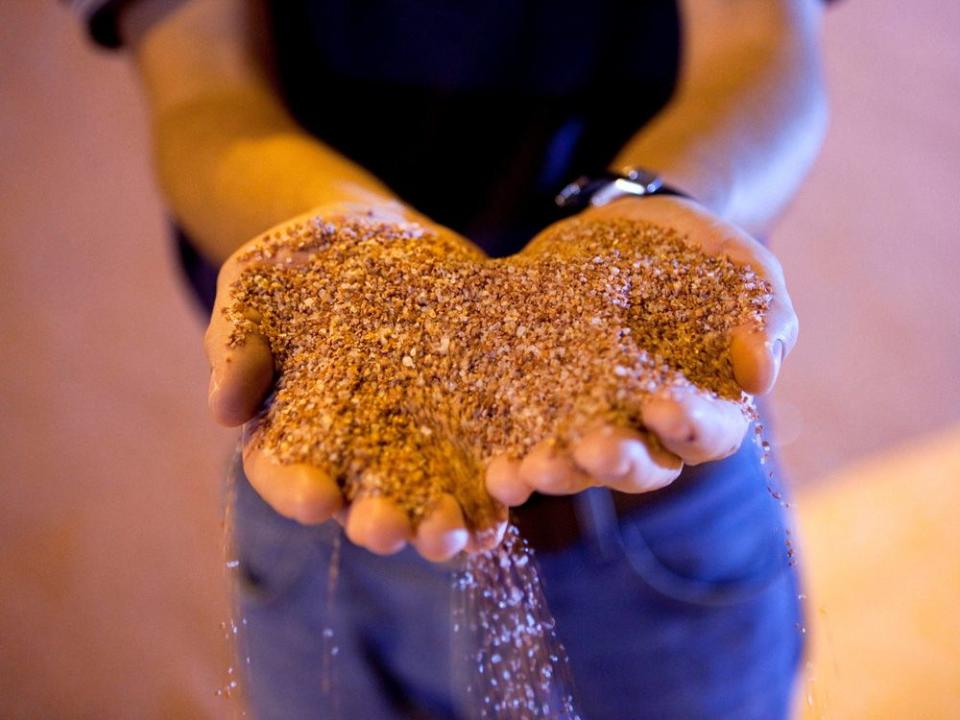Mosaic yet to finalize a date to restart its Canadian potash mine

Mosaic Co. says the full resumption of its potash mine in Saskatchewan, where production was curtailed in December, will depend on when the company’s current inventory drops enough to restart operations for the long term.
The Tampa, Fla.-based company said in a Dec. 6, 2022, statement that it had “temporarily curtailed” its Colonsay potash mine in Saskatchewan as its inventory levels were sufficient to meet near-term demand. It added that it expected to restart its mill by early 2023.
“I can’t really speculate on when we would start up. It depends on when our current inventories go down,” company spokesperson Sarah Fedorchuk said. “However, farm economics remain strong and we anticipate this happening as we move through the first quarter.”
The company’s first quarter ends on Mar. 31.
Last month, Mosaic’s chief executive Joc O’Rourke said in a press release that the company’s decision to curtail Colonsay reflected “near-term dynamics and not long-term agricultural market fundamentals.”
Prior to the curtailment, Colonsay was producing at an annual rate of 1.3 million tonnes. The company has plans to expand the annual output to 1.8 to two million tonnes by restarting its second mill in late 2023.
The company had previously suspended activities at the mine due to “challenging potash market conditions” in 2016, when about 330 employees received temporary layoff notices. It had also announced an “indefinite idling” of the mine in 2019 due to “excess inventory” before restarting production in August 2021.
O’Rourke, in an interview with Reuters published on Wednesday, said he was being cautious about the latest restart and that the “last thing” the company wanted to do was to “start it up, run it for a month and a half and have to shut it down again.”
Yamana's Peter Marrone says gold miners will keep merging and tin is the next big thing
'Makes no sense to me': Barrick CEO Mark Bristow says West's deglobalization push a tragedy
Patriot Battery shares jump more than 20% on 'astounding' lithium drill results in Quebec
Joel Jackson, an analyst at the Bank of Montreal, said the curtailment was expected due to the slowing demand.
“We’ve been waiting for a curtailment announcement since September as a game of ‘chicken’ has developed between suppliers and buyers/growers,” he said in a research note on Dec. 6. “Winter potash mine curtailments are not novel, Colonsay has been the swing Saskatchewan mine for many years, and this could be the next step in a potash bottoming process.”
Prices of potash had initially increased after Russia, a key producer of the commodity, invaded Ukraine and sanctions were issued by Western nations that slowed down exports. But demand also slowed down towards the end of last year.
Mosaic is one of the world’s biggest producers of potash crop nutrients, primarily used in fertilizers to increase crop yields. The company’s North American potash operations in Saskatchewan and New Mexico are responsible for about 34 per cent of its annual production.
The company in November said it was expecting to pay about $1.2 billion in resource taxes and royalties to the government of Saskatchewan in 2022, which it said is “far and away the most exhaustive resource tax regime in the world” since its global competitors are paying 40 per cent less taxes than the Canadian potash producers.
• Email: nkarim@postmedia.com | Twitter: naimonthefield

 Yahoo Finance
Yahoo Finance 